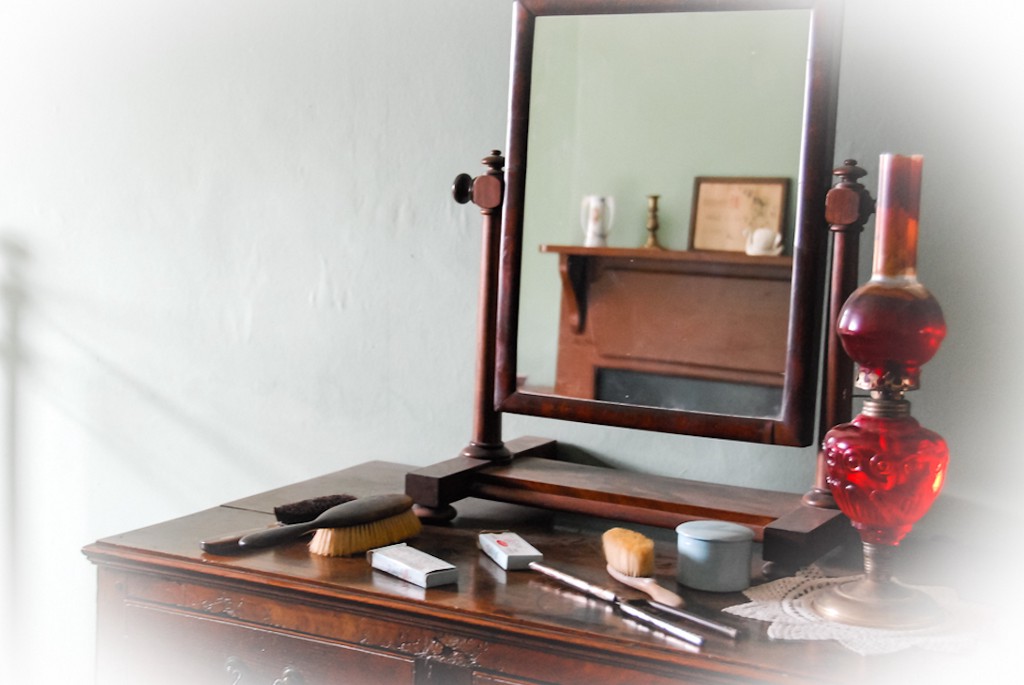Why Worry About What You Don’t Know?
What’s the point?

As of late, I have been consumed with the idea of a dresser — big and hulking and wood and potentially haunted, with a mirror and space for mail and matchbooks and loose change. I have a dresser right now, a white particleboard Ikea special that has survived two moves mostly intact. The stiff cardboard that serves as the bottom of each drawer is starting to collapse. One of the drawers doesn’t really work. Its time is done. And now that one of my rooommates is moving out, we’re getitng a real living room and I’m moving down the hall. I’m going to buy a dresser. I just need to find one.
Yesterday, I went to an overpriced secondhand shop down the street from my apartment and poked around for a dresser. After fifteen minutes of wandering up and down the same three aisles, I found something. Hidden behind a pile of dusty chairs and weird lamps, there was my dresser. It was $174 — a number that is neither terribly high or terribly low — and checked off the three requirements that I had: the drawers worked; it was real wood; it had a big, lovely, cloudy mirror attached. As I am incapable of making a financial decision larger than $43 without outside input, I texted my sister.
The impulse to consult others when making a decision is one that I’ve been trying to quash; despite my best efforts, I still feel like purchases require validation. Everyone loves a deal, but no one wants to feel like a sucker. Asking someone if they think it’s reasonable to pay $174 for a dresser is insurance against that very specific feeling.
We bantered back and forth about the dresser — its size, the style, whether or not it was big enough to fit in the space. I checked my bank account. The money was there. A dresser could be mine soon. Then my sister told me that her friend bought a couch from the same store years ago and got bed bugs.
“It creeps me out,” she said. “I don’t trust it.”
Bed bugs are a common occurence in New York, an expensive nuisance and psychologically traumatic experience that I have thankfully avoided in the six years that I’ve lived here. Don’t buy a dresser from somewhere that gave someone bed bugs one time five years ago, whispers the voice of reason. Why risk it? Why tempt fate?

When presented with two outcomes, one bad and one good, I am always inclined to assume the best. To speculate about the negative is just as fruitless as speculating about the positive — either way, the future is out of my hands. Yes, I could certainly get bed bugs from a dresser but I could also get them from anywhere else. If I put my bag on the floor at the movie theatre, a rat could scamper across the floor, crawl into my bag and nestle itself to sleep next to my wallet and a handful of crumpled receipts. If I don’t look while crossing the street, I could make it across just fine or a bicyclist could run over my toes. Worrying about the bad is fruitless; assuming that everything will work out for the best is foolish. I’ve yet to find the balance between the two, but I trust that I will one day.

“Don’t settle,” a friend told me, after seeing the dresser and hearing about the bed bugs that could have been. Maybe, if it’s still there in a week, I’ll get it anyway.
Support The Billfold
The Billfold continues to exist thanks to support from our readers. Help us continue to do our work by making a monthly pledge on Patreon or a one-time-only contribution through PayPal.
Comments